The Way-Too-Early Top 25 rankings for next season in college basketball have been updated, and with that, we've decided to look beyond the on-the-court talent and see what lies in the future. Which players, after they get done walking the walk, will talk the talk? We look at the next great broadcaster on each of the nation's best teams.

1. Duke Blue Devils: Amile Jefferson
The senior forward already has a solid template of former Blue Devils-turned-analysts/broadcasters to follow. His trademark would probably come from his willingness to call it like he sees it. He's already getting plenty of practice doing that on the court, where before he was injured last season, he was the unequivocal floor leader for the Blue Devils. Jefferson is the voice his teammates hear, in addition to the coaches, if something needs to be corrected. -- C.L. Brown
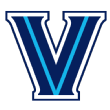
2. Villanova Wildcats: Kris Jenkins
Even before he made the shot to win the national title, Jenkins earned the nickname "Big Smoove," thanks to Fox play-by-play man Gus Johnson. Though publicly quiet, Jenkins has a sharp wit that he's not afraid to share and always appears to be hiding a secret. He'd be the cool-cat version of an analyst. -- Dana O'Neil
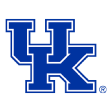
3. Kentucky Wildcats: Bam Adebayo
Gregarious big men seem to find more success in the broadcast world than their peers who played on the perimeter. Shaquille O'Neal, Chris Webber, Charles Barkley and Bill Walton all retained the prominence they enjoyed in their basketball careers when they became on-air talents after retirement. Adebayo competes with a raw intensity that turned the 6-foot-9, 260-pound talent into a five-star recruit. Off the court, the world seems to orbit around the freshman who can't stop smiling. Fans want his autograph and his teammates cling to his energy. Plus, his nickname is "Bam" because he flipped a coffee table while watching the "The Flintstones" when he was a kid. And then there's this Adebayo comment from a recent CoachCal.com video: "I'll just listen to my Katy Perry and keep it moving." Put him on TV. -- Myron Medcalf
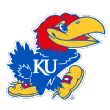
4. Kansas Jayhawks: Josh Jackson
Though just a freshman, Jackson has already built a formidable reputation for talking a good game. Take it from The Undefeated's Marc J. Spears: "His name is Josh Jackson, and he possesses both a standout game that could make him the No. 1 pick in the 2017 NBA draft and trash-talking skills that already compete with the likes of all-star yappers [Gary] Payton and Draymond Green of the Golden State Warriors." Any 19-year-old who can, as Jackson himself put it, talk "smack" to a Hall of Famer like Payton has the self-confidence necessary to project an authoritative aura on the airwaves. You can look forward to seeing Jackson doing the analysis on a college game near you once he gets this whole playing thing out of the way. -- John Gasaway

5. Virginia Cavaliers: Jack Salt
Who wouldn't like a little Kiwi flavor in a broadcast? The redshirt sophomore center is a native of Auckland, New Zealand, and still has his accent fully intact. Salt would literally bring a distinctive voice to calling names, and his metaphors and vernacular might take some time to get used to hearing. But every game he called would be like getting an international education. -- Brown
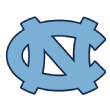
6. North Carolina Tar Heels: Theo Pinson
We already know Pinson isn't shy. He memorably crashed the Tar Heels' pregame press conference before the regional final of the NCAA tournament, walking on the dais and asking where his seat was (um, only starters, Theo). A baffled and amused Roy Williams said he was fairly certain he'd never seen that happen in all his years of coaching. -- O'Neil

7. Oregon Ducks: Dillon Brooks
Throughout the NCAA tournament, Oregon's star guard led his teammates with his production and his passion. Before the Ducks defeated Duke in the Elite Eight, the Canadian standout told the world he did not fear the Blue Devils. Then he scored 22 points and connected on 4-of-9 beyond the arc. He also trash-talked Duke throughout the game, which led to the mini-controversy over what coach Mike Krzyzewski said to Brooks in the handshake line. Brooks is brash. And that's a great quality for any broadcaster. As an analyst, he wouldn't hold back. Who wants to see an analyst with dry commentary? We love Bill Walton because you know he's ignoring anything his producers are suggesting through his earpiece. Charles Barkley just hops onto his soapbox and rants. That's attractive. Brooks has that quality. If he has something to say, you'll know it. -- Medcalf
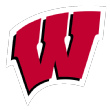
8. Wisconsin Badgers: Nigel Hayes
Hayes will be the Bill Walton of college hoops announcers in the 2050s. Whether it's his memorable press conferences, his winning ways on social media, or even his feats of renown on the basketball court itself, it's clear that this is Hayes' trajectory -- nay, his destiny. In 40 years he'll be courtside waxing nostalgic about how back in his day young people used good old-fashioned Snapchat and didn't need all this fancy-schmancy thought teleportation that the kids are using nowadays. All Hayes will require is a catchphrase ... "Onomatopoeia"? -- Gasaway

9. Xavier Musketeers: Edmond Sumner
Big smile, sharp dresser, Sumner already looks the TV part. He's also been through the rigors of college basketball -- a bad injury, that scary fall at Villanova, and then the surprising out-of-world talent that turned everyone's head -- and he'd had have plenty of insight into the game. -- O'Neil

10. Michigan State Spartans: Lourawls "Tum Tum" Nairn
With a nickname like "Tum Tum," Nairn would bring a blend of personality and life experience to the broadcast booth. He could speak on his journey from the Bahamas to sharing a Florida house with 20 other hoop dreamers at a diploma mill basketball academy. He'd be the kind of storyteller who would keep an audience captivated for what was next. -- Brown

11. Indiana Hoosiers: Collin Hartman
This past summer, Hartman completed an internship with a Greek restaurant in Bloomington. An experience like that can give a future college hoops analyst a go-to fund of anecdotes and vignettes, a bit like Dick Vitale and his stint as head coach of the Detroit Pistons. More practically, Hartman has recognized that going into restaurant management after college could be "one of the most competitive businesses you can get into." That is so true -- a career in announcing may be a cakewalk by comparison. -- Gasaway
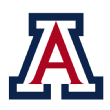
12. Arizona Wildcats: Parker Jackson-Cartwright
Coach Sean Miller will again field a team that's capable of winning the Pac-12 title and making a deep run in the NCAA tournament. He needs Jackson-Cartwright to help lead an athletic, explosive group that includes Ray Smith (who missed last season due to injury), Allonzo Trier and Kobi Simmons. Jackson-Cartwright finished the 2015-16 season with assists on more than one-quarter of his possessions. The point guard understands the game, and that's the most significant quality for an analyst. During interviews, he's always thoughtful and measured with his responses. Every broadcast needs a guy to balance the Waltons and Barkleys out there. Jackson-Cartwright does that on the court, and he could do the same in front of the camera. -- Medcalf
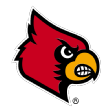
13. Louisville Cardinals: Donovan Mitchell
Upon reading projections that Duke was the likely preseason No. 1 team, Mitchell took to Instagram. He posted a picture of himself nearly inside a Duke huddle with an emoji caption and greater than symbols that implied Louisville would be better. That sums up why Mitchell would do well behind a microphone. He'd be unafraid to make those statements that go against popular opinion. -- Brown

14. Purdue Boilermakers: Spike Albrecht
Imagine him sitting back, getting all Walton-esque as he spins a few yarns from his Final Four experience -- you know, the one where he came out of nowhere to stun Rick Pitino and practically steal the game away from Louisville and then proceeded to call out Kate Upton. Who knows? Maybe he could even get Upton to sit in for a segment. -- O'Neil

15. West Virginia Mountaineers: Teyvon Myers
He averaged just 2.4 PPG in less than 10 minutes per game last season. But the senior's limited playing time didn't stop him from encouraging his teammates from the sideline. He's the energy guy for the Mountaineers. His pregame wisecracks and in-game emotion lift the entire arena. He's the guy who, from the bench, begs fans to stand and cheer. Myers says his junior college coaches would often tell him to sit down and relax on the bench. So he'd grab a cup of water and pretend to drink just so he could remain on his feet. You can feel the energy from a good on-air personality. This is not something Myers would wrestle with as an analyst. -- Medcalf
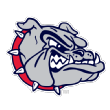
16. Gonzaga Bulldogs: Przemek Karnowski
Karnowski has the depth of experience any announcer needs. He has logged not four but five seasons in college, rehabbed to overcome a significant injury, reached an Elite Eight and even represented his country of origin (Poland) in the European championships. If Karnowski is doing the analysis on a game someday and the action on the court turns into a blowout, his rich and varied biography will give him the ability to fill the air time. -- Gasaway
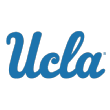
17. UCLA Bruins: Lonzo Ball
Like your broadcasts peppered with pop-culture references? Ball would be the guy you'd want calling a game. (Check out his #sogonechallenge on Twitter @Zo2.) Ball would not be the type to make every outcome seem so dramatic. He'd keep it lighthearted and fun. -- Brown
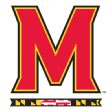
18. Maryland Terrapins: Jaylen Brantley/Jared Nickens
Sorry, you can't take one without the other. The two guys who turned the Running Man Challenge into a viral video craze showed their offbeat humor in their initial throwdown to other college players. Plus, they've already appeared on "The Ellen DeGeneres Show." They wouldn't be intimidated talking on camera. -- O'Neil

19. Saint Mary's Gaels: Dane Pineau
Randy Bennett coached two of the stars on Australia's national team, Matthew Dellavedova and Patty Mills, at Saint Mary's. The duo helped their team push the American squad to the brink in the Olympics. Bennett's 2016-17 squad is also loaded with Australian talent. The Gaels are the West Coast's most underrated team entering the season. Pineau, who averaged 11.3 PPG and 8.1 RPG last season, should help the Gaels compete for the West Coast Conference title again. He's also the team's top prospect for a career in television. The Australian's accent helps. Plus, he's eclectic. In this interview, he admits he's a fan of "Friends" and DJ Khaled. What else do you need to know? -- Medcalf
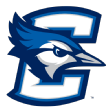
20. Creighton Bluejays: Maurice Watson, Jr.
A point guard who arrived in Omaha by way of his native Philadelphia and then Boston University, Watson has summed up a broadcast personality's role succinctly (even if he was talking about basketball). "I just want to get everybody involved," Watson has said. "I want to get the basketball in the right spot and be the catalyst." Sounds like a true announcing star in the making. -- Gasaway
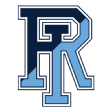
21. Rhode Island Rams: Hassan Martin/E.C Matthews
These two would have to be hired as a pair. The Rams' leaders have been compared to the iconic Nintendo game brothers Mario and Luigi, but a more fitting nickname might be "Yin and Yang." Martin and Matthews are two different personalities, and when they're together, they shine brighter as a tandem. -- Brown

22. Cincinnati Bearcats: Kyle Washington
Known for his high energy and high motor, Washington could bring the same verve to a broadcast. A self-described "extrovert," you have to think the NC State transfer wouldn't be shy about sharing an opinion or two, either. -- O'Neil
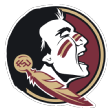
23. Florida State Seminoles: Xavier Rathan-Mayes
It's not easy to excel on TV. Sure, producers and crew members all help. But it's kind of like writing without the ability to erase anything you've said. That's a difficult spotlight for anyone on TV, even those who are trained. Many athletes have failed as broadcasters because they couldn't handle that consistent pressure. Rathan-Mayes could pursue a career in broadcast because he understands the demands that come with that spotlight. He's playing at a university where his father, Tharon Mayes, recorded numbers that made him one of the greatest players in school history. Xavier wasn't afraid to follow that legacy. He faces questions about his father's career every year. And he handles all of them with class and honesty. That's why he'd excel on TV if he decided to go that route after he's done with basketball. -- Medcalf

24. Connecticut Huskies: Rodney Purvis
Purvis is comfortable being the voice of veteran experience in a storied program he transferred into (from NC State) three years ago. During the offseason, the senior point guard took two of his newly arrived teammates "out on a date," explaining that he wanted Juwan Durham and Vance Jackson "to know I've got their back, no matter what." This is what announcers do. They show initiative, go out to eat, and keep a close watch on who pays the tab -- "They were surprised when I paid for the food," Purvis said -- for possible deployment as on-air ribbing at a later date. -- Gasaway

25. Syracuse Orange: Tyler Lydon
Some of the best basketball commentators throughout the years have been the ones who were the most unpredictable. Lydon fits that mold. Who knows if he'd show up for a broadcast sporting that thin mustache, which has its own Twitter account. He just may weave hunting and fishing analogies into the game he's covering, since he'd probably rather be outdoors anyway. Lydon has a dry wit about him that could make for entertaining banter, even during a blowout game. -- Brown
